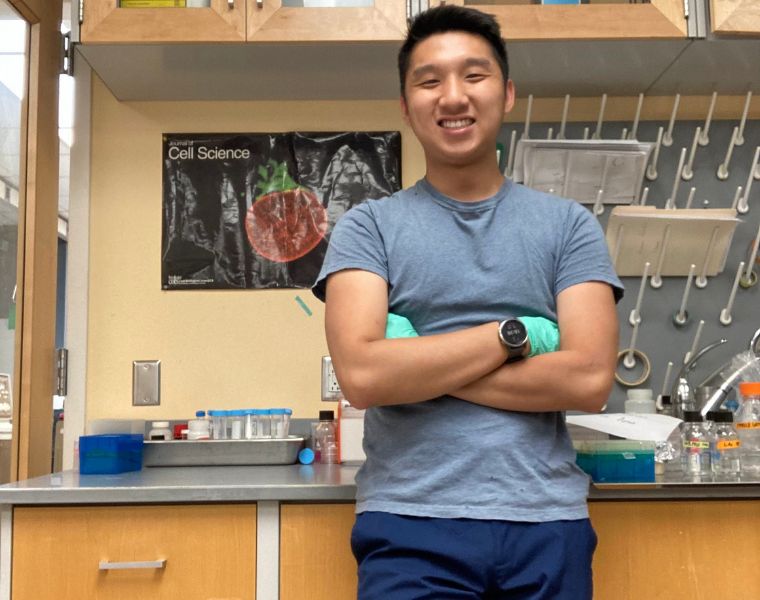When it comes to complex issues, Ethan Lin starts with the basics. As a biology major, that often boils down to considering his field’s most fundamental concept: cells.
This summer, Lin is applying that approach to gain insight into how cancers form, working with mentor Alan Tartakoff, professor of pathology at Case Western Reserve University School of Medicine.
“To unravel the complexities of cancers, we decided to focus on understanding their genesis, and what better place to start than the heart of the cell, the nucleus?” said Lin, a rising fourth-year student who also is a resident assistant, president of the CWRU Model UN team and a member of CWRU Emergency Medical Service (EMS).
Lin is examining cell lines to locate where ribosomes are being produced, based on a long-held belief that the activity plays a pivotal role in cancer cell maintenance. Ultimately, he’s working with the rest of Tartakoff’s research team to develop a protocol in clinical research that would streamline pathological analysis.
Lin’s research is supported by the Provost Summer Undergraduate Research Grant through the Office of Support for Undergraduate Research and Creative Endeavors (SOURCE).
Read more about Lin’s work and find out how he spends his time when he’s not in the lab.
Answers have been lightly edited for length and clarity.
1. Why did you decide to stay on campus to conduct research this summer?
[Thanks to funding from SOURCE], I could focus solely on my research goals without having to take up additional work or projects to cover summer expenses, which might have diverted my attention away from the main objectives.
Another pivotal factor that influenced my decision to remain on campus was the unwavering support of Dr. Tartakoff. Our research project required a significant amount of in-person presence in the lab for various work and analysis. Dr. Tartakoff’s continuous support and guidance proved to be invaluable. His mentorship played a crucial role in my ability to make progress and explore the complexities of ribosome production and localization in different cell lines.
2. When completed, what do you hope the outcomes will be with this research?
The ultimate goal of our research is to enhance our understanding of ribosome production in both cancerous and normal cells. By gaining deeper insights into this process, we aim to facilitate more precise targeting of future chemotherapeutic agents, leading to improved treatment strategies for cancer patients … [and contributing] to a broader comprehension of cellular processes.
3. What is the most valuable thing you’ve learned as a researcher so far?
Perseverance is one of the lessons that I have learnt early on. There will be days when experiments aren’t running or certain things get lost in the process, but through all that looking at the end goal keeps me going. I think this is the most valuable lesson that I have been able to learn. Of course it is a marathon. There are times when you need to sprint, but always looking at the end goal seals the deal.
4. Have you had any especially rewarding moments in your time with CWRU EMS?
The experience of training others in the art of patient communication. While medical knowledge and technical expertise are undoubtedly crucial in the field of EMS, the skill of effectively conversing with patients, whether in crisis or not, often gets overshadowed by the countless assessments we have to perform.
Every day, I cherish the moments when I witness the skills I’ve imparted being put to use during emergency situations. These instances reaffirm my passion for EMS and reminds me of the incredible privilege and responsibility I have and is what drives me to continue in this line of work
6. Why did you get involved in Model UN and what’s it like leading the organization?
During my high school years, I first got involved in Model United Nations (MUN). When I joined CWRU, I saw an excellent opportunity to maintain my connection to MUN and also build a new community. Fortunately, I had the privilege of being part of the staff for the High School Model UN Conference hosted by the Cleveland Council on World Affairs, organized by CWRUMUN. Witnessing the transformative experience that local high school students had while participating in the program inspired me to continue my involvement in MUN.
During my time I have been amazed to work with so many brilliant people who come from different backgrounds.


